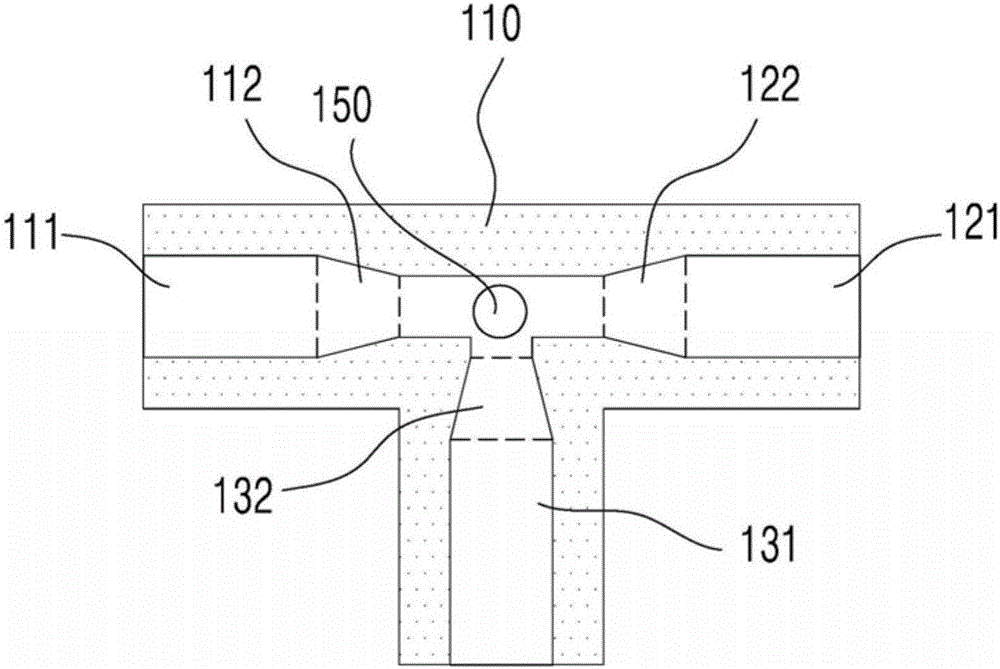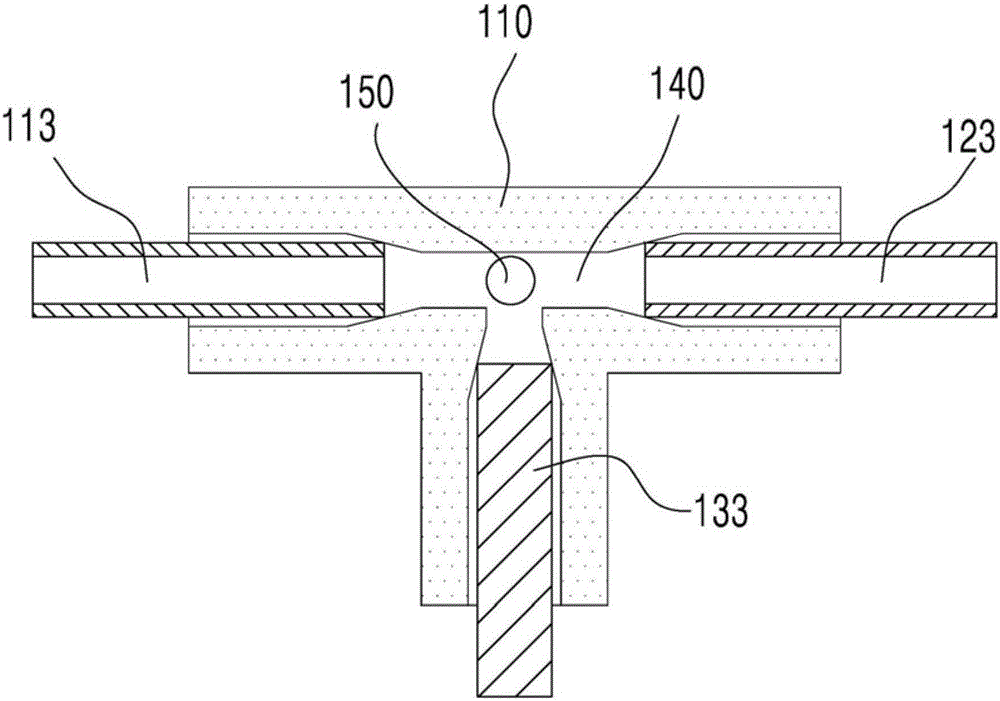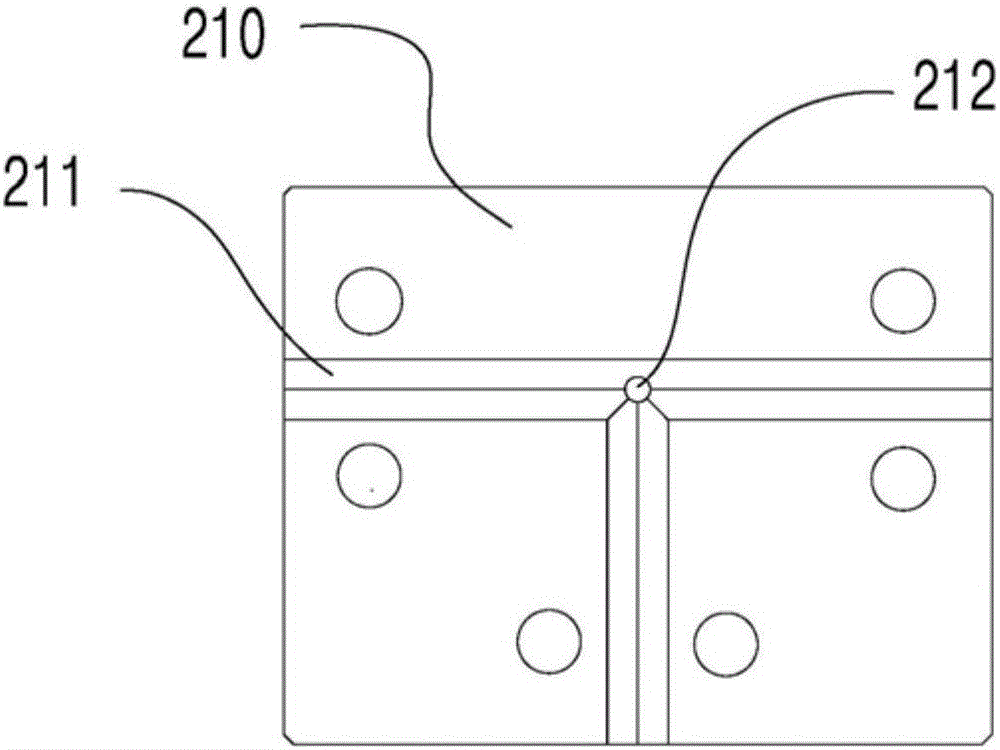A full-contact fluorescent detection cell for capillary electrophoresis
A technology of capillary electrophoresis and fluorescence detection, applied in measuring devices, material analysis through optical means, instruments, etc., can solve the problems of high background signal and noise level, aggravate the optical distortion of the excitation beam, reduce the sensitivity of the detector, etc., and achieve convenient Effects of troubleshooting, eliminating stray light interference, and reducing loss of fluorescence intensity
- Summary
- Abstract
- Description
- Claims
- Application Information
AI Technical Summary
Problems solved by technology
Method used
Image
Examples
Embodiment 1
[0056] A full-contact fluorescent detection cell for capillary electrophoresis, assembled according to the following steps and parameters:
[0057] 1. Assemble the detection cell body assembly 100, as attached figure 1 and 2 Shown:
[0058] A transparent T-shaped tee pipe 110 made of quartz glass has tapered diameter-reducing sections 112, 122 and 132 on the inner walls of its main pipes 111, 121 and branch pipes 131, respectively. The center of the through pipe 110; the outer diameter of the T-shaped tee pipe 110 is 3 millimeters, the inner diameter is 500 microns, and the diameter is 100 microns after passing through the tapered section with an included angle of 45 degrees. Apply cured glue on the outer wall of the first port of the capillary with an outer diameter of 365 microns and an inner diameter of 100 microns, and then insert them from the open ends of the main pipes 111 and 121 until the ends reach the tapered diameter reducing sections 112 and 122; the outer wall...
Embodiment 2
[0065] According to Example 1, a full-contact fluorescence detection cell was set up, and the detection cell was used to assemble a light-emitting diode-induced fluorescence detector and applied to capillary electrophoresis to detect the vitamin B2 content in commercially available pork.
[0066] Assembly scheme: use a light-emitting diode with a central wavelength of 470nM, a band-pass interference filter BP470nm to filter the light source, a 5V constant voltage source connected in series with a 100Ω resistor to power the light-emitting diode; the excitation light is irradiated to the detection area through the optical fiber I. Use fiber II as the collection fiber to collect fluorescence in the direction perpendicular to the excitation light, conduct it through fiber II, pass through the fluorescence filter (BP530nm) to eliminate background interference light, and finally enter the photomultiplier tube to convert it into an electrical signal and output it to the workstation.
...
PUM
| Property | Measurement | Unit |
|---|---|---|
| thickness | aaaaa | aaaaa |
| thickness | aaaaa | aaaaa |
Abstract
Description
Claims
Application Information
 Login to View More
Login to View More - R&D
- Intellectual Property
- Life Sciences
- Materials
- Tech Scout
- Unparalleled Data Quality
- Higher Quality Content
- 60% Fewer Hallucinations
Browse by: Latest US Patents, China's latest patents, Technical Efficacy Thesaurus, Application Domain, Technology Topic, Popular Technical Reports.
© 2025 PatSnap. All rights reserved.Legal|Privacy policy|Modern Slavery Act Transparency Statement|Sitemap|About US| Contact US: help@patsnap.com



